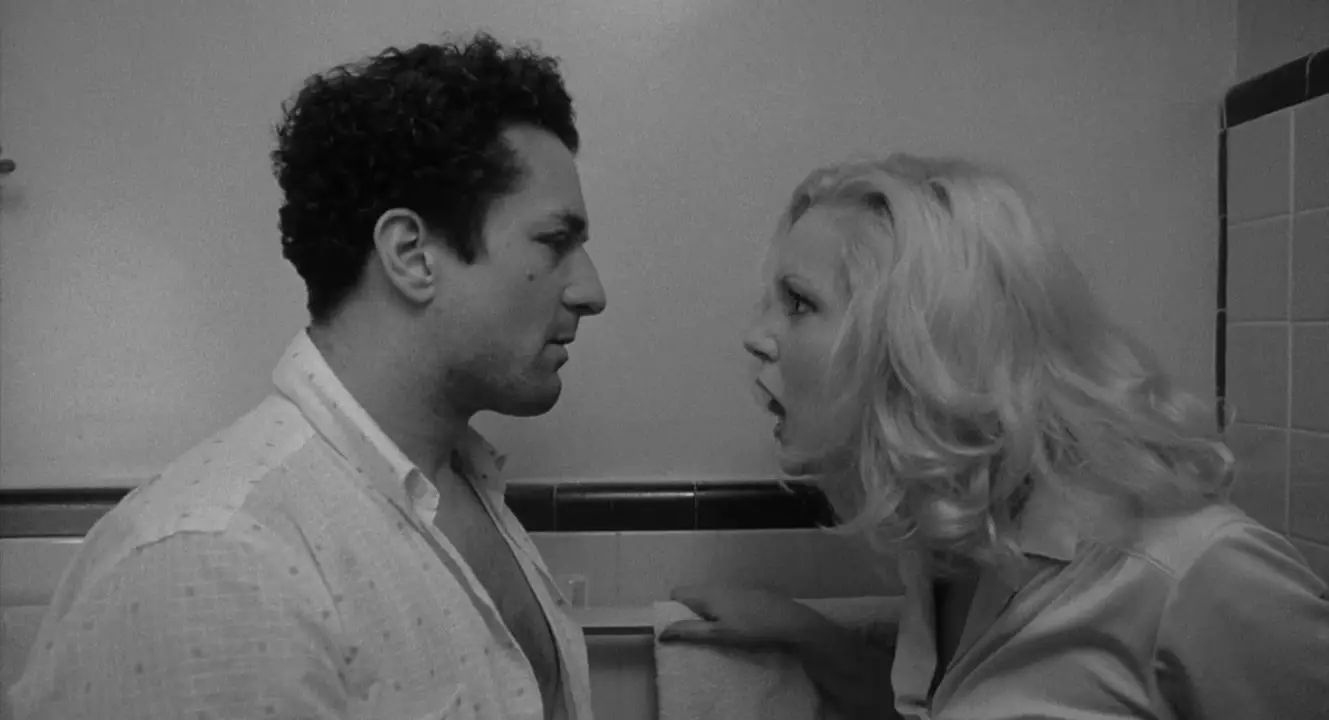Top 100 Movies Robert De Niro’s Raging Bull. A bit ago, I started going through this list of movies, one by one. I figured I could stand to learn a thing or two about “good movies” from Hollywood’s perspective as I’ve been something of an outsider in the world of film. Today is a fun day, because I’ve never seen Raging Bull… and have heard lots of different things about it, and now I get a chance to experience it for myself, finally! So, let’s hit play shall we?
For those of you who don’t know, Raging Bull is a 1980 biographical sports drama film directed by Martin Scorsese, starring Robert De Niro as the legendary middleweight boxer Jake LaMotta. The movie is based on LaMotta’s memoir, Raging Bull: My Story, co-written with Joseph Carter and Peter Savage.
Top 100 Movies Robert DeNiro’s Raging Bull Walkthrough
The film opens with middle-aged Jake LaMotta (played by Robert De Niro) getting ready for a comedy club performance. He is overweight, retired from boxing, and struggling to make a living. He reflects on his life and career as a boxer, and the film then flashes back to his early days as a boxer in the 1940s.
It’s obvious that early on, LaMotta was a hardcore competitor. Better yet, he also had a very short fuse, and was easily prone to violence. His manager, his younger brother Joey (played by Joe Pesci), helped guide his career and tried to keep his boxing brother focused. Meanwhile, LaMotta meets and marries his first wife, but he becomes increasingly paranoid and abusive, suspecting her of cheating on him and quickly his first marriage ends in divorce.
LaMotta then meets and falls in love with Vickie (played by Cathy Moriarty), a 15-year-old girl who becomes his second wife. (Is this back when child-brides were normalized things??) Regardless, despite their age difference, they have a passionate and tumultuous relationship. LaMotta’s jealousy and suspicion of Vickie leads him to become physically and emotionally abusive towards her, causing her to leave him. Are we sensing a theme here? Remind me why there are books and movies made about this guy? Because he was prodigious in the ring?
Yup, as expected, LaMotta’s boxing career reaches its peak when he becomes the middleweight champion of the world. Simultaneously though, his personal life is in turmoil, and he becomes increasingly paranoid and abusive towards those around him. And voila, I could have predicted this, LaMotta begins to suspects Joey of having an affair with Vickie, causing a rift between the brothers. And it is LaMotta’s completely unhinged and reckless behavior that lead to his downfall. Soon after, he loses his title. And, like a switch has been flipped, he falls into obscurity.
Now we return back to the opening, LaMotta, overweight, and performing as a comedian. There on the stage he attempts to come to terms with his own screw-ups, his own failures earlier on in his life. And the film ends with LaMotta still on stage, but apparently at peace with who he is. Yeah. I’m sorry. But, no thank you.
Thoughts on the Film Raging Bull
Throughout the film, there are several memorable boxing sequences, including LaMotta’s famous fights with Sugar Ray Robinson. The film is known for its stark black and white cinematography, its gritty portrayal of LaMotta’s life, and De Niro’s powerful performance as the troubled boxer. And I’m guessing that it’s these moments that built the film up and earned it over $70 million dollars. But the fact that we are glorifying this guy in book and in technicolor (I guess it was in techniblack?). Maybe if he had attempted to reconcile with his wives? Or his brother? I don’t know. That ending definitely did not do it for me at all.
Yeah, I see the fantastic cinematography, and the BOLD choice to go retro-black and white. The lighting was impressive, many of the scenes were really quite mesmerizingly well shot. And yes, the acting was true grit. But why? Seems like we are glorifying a has-been. I’d never heard of LaMotta, so maybe this was a film for his fans? Or for the wider popular culture that were aware of who he was?
I do think I see that one of the key themes of the film is the destructive nature of jealousy and obsession. LaMotta’s jealousy of his wife Vickie, whom he suspects of infidelity, drives him to beat her and ultimately drives her away from him. His obsession with his own image as a boxer also leads him to take unnecessary risks and engage in reckless behavior, ultimately leading to his downfall. So, as a message against vanity, rage, and jealousy? Okay. We have our poster boy right here. And yeah, the more I let the movie soak, and the more I think about it (it’s been a week now), I am realizing that that is literally what this film is doing. If we get so wrapped up in ourselves, we not only damage the ones we love, but ourselves as well.
Edited by: CY



